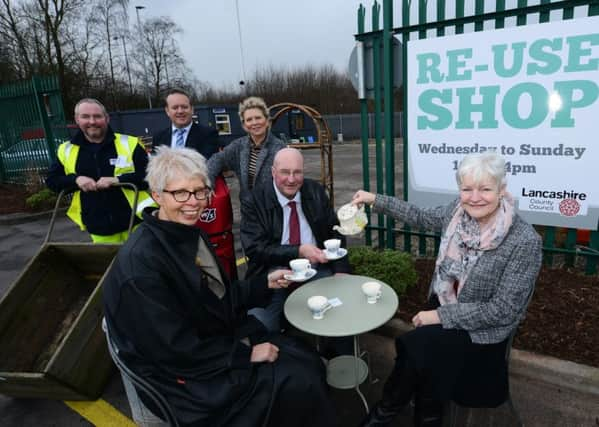Half of all Fylde coast waste is recycled


New figures show the county now hits its EU target in 2015/16 by recycling more than 50 per cent of waste, excluding construction and demolition materials.
The 51.6 per cent of waste which went for recycling was up from 47.3 per cent in 2014/15.
Advertisement
Hide AdAdvertisement
Hide AdAnd County Hall chiefs are asking for more, even though they say recycling is their “third choice” option for dealing with rubbish.
“We would much prefer for waste to be prevented in the first place,” said a spokesman. “Where it can’t be prevented, we would want waste to be re-used. After that recycled.”
The county council says it is developing plans to advance its waste ambitions and get greater value from the re-use of the county’s waste resources.
These could include “shops” selling locally recycled goods at the county’s waste disposal centres.
Advertisement
Hide AdAdvertisement
Hide AdGarstang’s former tip site pioneered the way to direct recycling when the council linked with a local charity to re-open it as a new “Community Recycling and Re-use Centre”.
The county council has 16 Household Waste Recycling Centres where people can take items such such as scrap metal, oil, textiles, clothes, shoes, fridges/freezers, paint etc can be left, for recycling.
On average 75 per cent of waste taken to these centres is recycled.
The council says it tries to “get the best price in the market” when appointing recycling contractors, who must follow international regulations on waste shipments when waste is transported overseas.
Advertisement
Hide AdAdvertisement
Hide AdMeanwhile it is district councils which have the responsibility to collect rubbish from bins at people’s homes.
One big issue looming ever nearer is how local councils will cope when the county’s decision to end cost-sharing arrangements with district authorities fully hits home.
In Wyre a spokesman said: “This has impacted on the council already. LCC funding through the agreement has been reduced by approximately six per cent per annum over the last few years and will end in 2018.”
A year ago LCC decided to mothball two giant recycling plants at Farington and Thornton - built at a cost of £150m each by Australian firm Global Renewables - and instead send garden and food waste to landfill.
Advertisement
Hide AdAdvertisement
Hide AdWyre chiefs praised residents for their efforts - but said staff still see some items that could have been recycled such as detergent bottles, tooth paste boxes, shampoo bottles, deodorants etc.
A spokeswoman said: “The cost of collection and disposal is set to keep on increasing and we would ask all our customers to give more consideration to waste and what they buy in the first place. Waste minimisation is key, so that we reduce the amount of waste and recycling produced.”